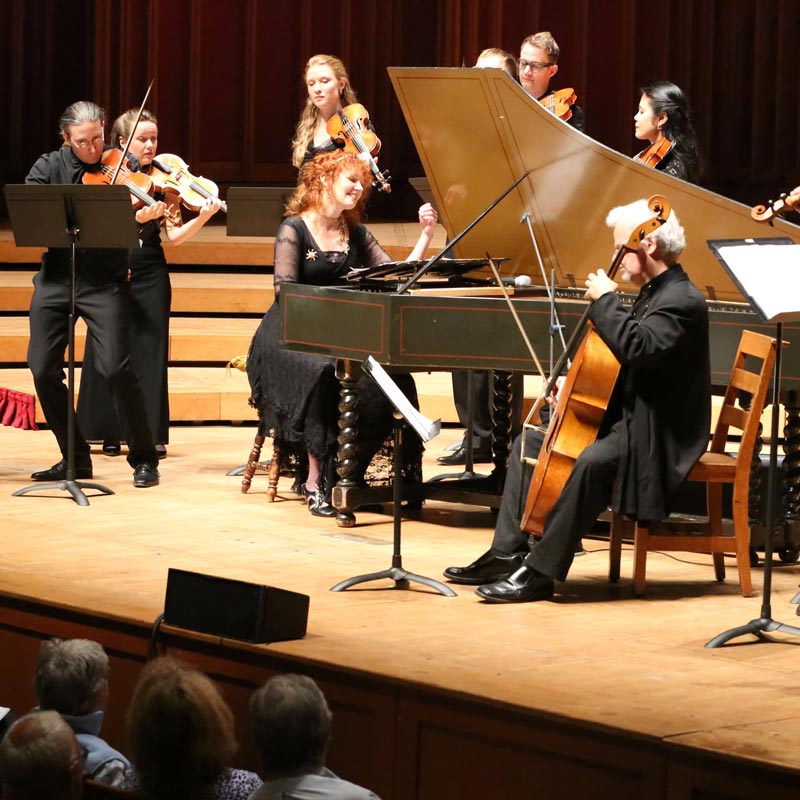by Peter Feher

The summer setting was front of mind from the beginning. Artistic Director Jeannette Sorrell structured the program along the lines of a seasonal concert that Bach himself might have conducted, an evening of outdoor music in 1730s Leipzig. Saturday’s performance stayed inside, but Bach’s influence extended to the choice of music itself.
If Bach is the big name among Baroque composers now, this wasn’t always the case. Sorrell and her ensemble made this historical point by ceding some of the program to Vivaldi and Telemann, in the same way that Bach made room for his more famous contemporaries on the program at those Leipzig concerts. This is performance practice at its most thorough — Apollo’s Fire expanding its early-music mission beyond individual pieces and into the very concert concept itself.
Telemann’s place on the program was humble. His Concerto Polonois in G served as opener, with Apollo’s Fire and Sorrell at the harpsichord doing their thing, making carefully coordinated changes of mood from sweet to stately to virtuosic.
Vivaldi’s influence reached further and even drew another composer into the fold. His Ciaccona in C Major was paired with an aria by his contemporary and colleague Nicola Porpora (“Alto Giove” from the opera Polifemo), both pieces in arrangements by Sorrell. The choreographed, almost theatrical number had violinist Emi Tanabe playing Porpora’s sad solo vocal line, eventually joined by another violinist (Olivier Brault) who completed \her phrases and then a pair of recorders (Daphna Mor and Kathie Stewart) who did the same.
Things heated up with two more works by Vivaldi. The Concerto in b for Four Violins was perfect for Apollo’s Fire’s rotating concertmaster setup. First violinist Alan Choo was the standout in a quartet that also included Brault, Tanabe, and Andrew Fouts. Choo found a lyricism and virtuosity that wouldn’t be out of place in a 19th-century concerto — though the spirit of the piece remained collaborative, rather than competitive, throughout.
Choo and Brault were the dueling soloists in Vivaldi’s Concerto in a for Two Violins, and here the playing did shade into friendly competition. Maybe there aren’t winners when it comes to music, but Brault dug into the first violin part and did everything to transform the final Allegro into a barnburner of a movement.
Bach made it onto the program at the end with his Brandenburg Concerto No. 4, and Apollo’s Fire did something clever saving him for last. The evening had gotten steadily more formal, from the theatrics of the first half to the “music as music” on the second. Brault handled Bach’s solo violin part, Mor and Stewart returned on recorder, and the audience was ready for a challenging piece of music, a little softened by the summer mood.
Sorrell and Apollo’s Fire brought things full circle with an encore — a jam session of Middle Eastern music featuring a couple of improvised solos. Graciously, they returned the evening to the relaxed, informal feeling in which it started.
Published on ClevelandClassical.com July 21, 2021.
Click here for a printable copy of this article


